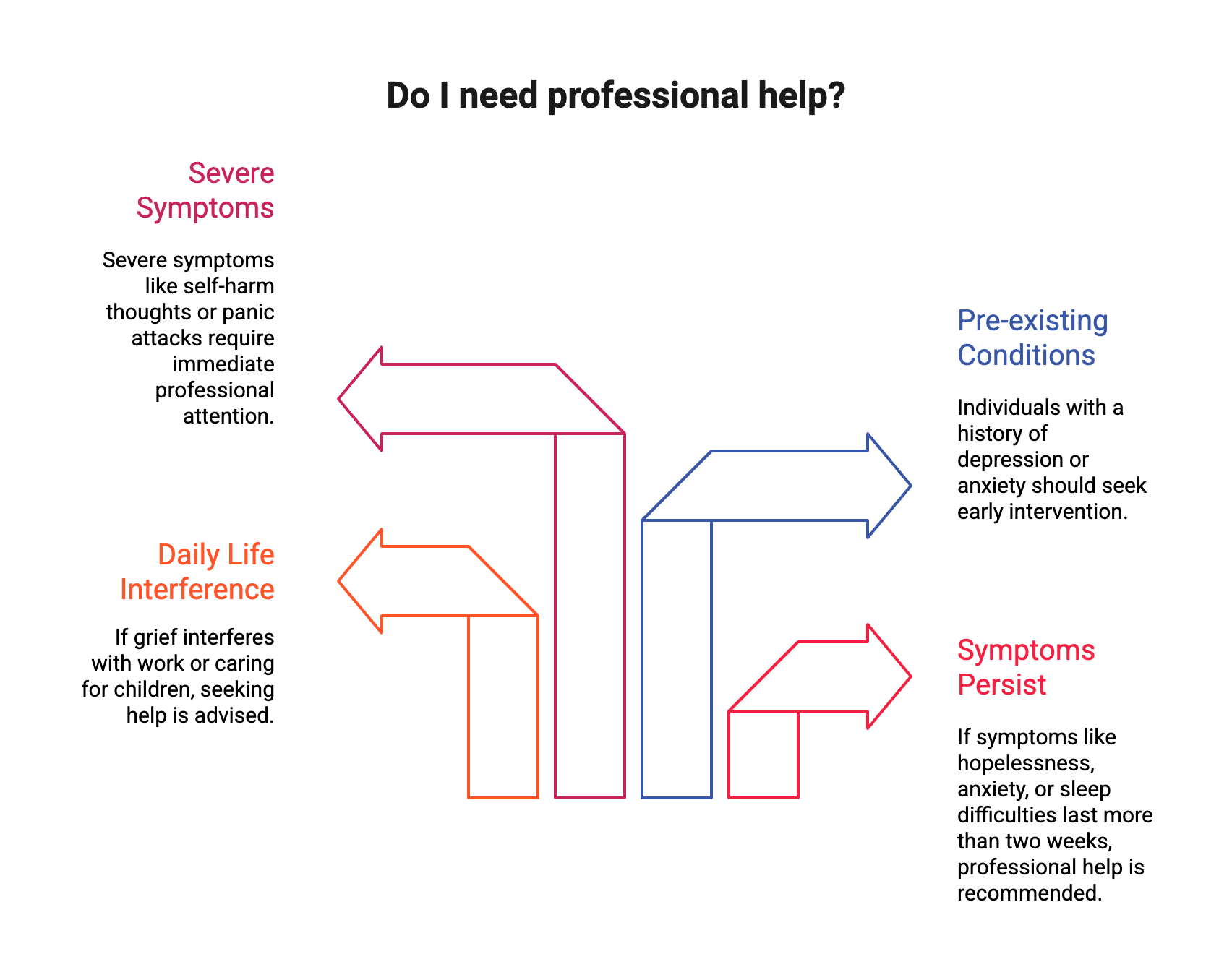How Pregnancy Loss Therapy Helps with Grief, Anxiety, and PTSD
Pregnancy loss affects mental health in profound ways. Approximately 30 percent of women experience significant emotional reactions after losing a pregnancy, and one in ten may develop anxiety or depression. Pregnancy loss therapy provides evidence-based support during this challenging time, helping process complex emotions and reduce symptoms of post traumatic stress disorder.
Understanding how pregnancy loss therapy can help may be an important step toward healing.
What Are the Emotional Effects of Pregnancy Loss?

Pregnancy loss can trigger profound grief, anxiety, depression, and trauma responses that interfere with daily life. Research shows these psychological effects are common and often long-lasting.
Many people experience sadness, guilt, self-doubt, and shame after a miscarriage or stillbirth. Due to societal silence around perinatal loss, individuals often feel isolated in their grief. Some women report feeling inadequate or like they’ve failed—a common misconception, since pregnancy losses are rarely within anyone’s control.
The psychological distress extends beyond sadness. Perinatal loss increases risk of depression and anxiety disorders. Partners and family members also experience significant emotional pain, though men’s grief is frequently overlooked. In some cases, pregnancy loss may affect bonding with future pregnancies or children.
For those who’ve experienced recurrent pregnancy loss—multiple miscarriages—the psychological effects can be especially severe. Infertility concerns and anxiety about future pregnancies often compound the grief.
Can Therapy Really Help After Pregnancy Loss?
Yes—therapy significantly reduces grief, depression, anxiety, and PTSD symptoms following pregnancy or infant loss. Multiple studies confirm that talk therapy works.
Psychosocial interventions improve outcomes for people experiencing perinatal loss. These approaches provide emotional support, help process feelings, and offer coping strategies tailored to each person’s situation.
Research suggests therapy creates measurable improvements in psychological well-being. Most people benefit from just a few sessions—often four or fewer—making therapy accessible even during a challenging time. Whether you experienced miscarriage, stillbirth, or other pregnancy losses, professional support can ease the healing process.
What Types of Therapy Work for Grief and Anxiety After Pregnancy Loss?
Cognitive Behavioral Therapy (CBT) and Interpersonal Psychotherapy (IPT) are two evidence-based approaches commonly used for pregnancy loss. Each offers distinct benefits depending on your symptoms and needs.
Cognitive Behavioral Therapy (CBT)
CBT helps manage negative thought patterns related to self-criticism, anxiety, and depression. After pregnancy loss, many people struggle with thoughts like “I did something wrong” or “My body failed me.”
CBT-based interventions reduce posttraumatic stress and prolonged grief in parents who have lost a pregnancy. This approach teaches you to recognize unhelpful thinking and replace it with more balanced perspectives. A therapist might help you challenge beliefs about responsibility or inadequacy that fuel depression and anxiety.
Interpersonal Psychotherapy (IPT)
IPT focuses on relationships and how they affect your emotional health. Pregnancy loss often strains connections with partners, family members, and friends. Some loved ones don’t know what to say, while others may unintentionally minimize your pain.
IPT has been studied for depression following perinatal loss. This therapy helps you communicate needs, navigate changed relationships, and rebuild social support during the healing process.
Grief Counseling
Grief counseling centers on the mourning process—acknowledging your baby’s brief life, honoring your feelings, and finding ways to carry this experience forward. Unlike general therapy, it focuses specifically on loss of a pregnancy or infant.
Complicated grief can occur after pregnancy loss, characterized by persistent sadness and anger that interfere with daily functioning. Specialized grief counseling addresses these symptoms directly and helps you cope with the pain at your own pace.
How Does Therapy Address PTSD Symptoms After Pregnancy Loss?
Post traumatic stress disorder can develop after pregnancy loss, especially following traumatic medical experiences or late-term losses. PTSD symptoms may include:
- Intrusive thoughts or flashbacks to the loss
- Panic attacks or severe anxiety
- Avoidance of reminders (hospitals, pregnant women, baby-related places)
- Feeling emotionally numb or detached
Therapy interventions reduce posttraumatic stress in parents after losing a child during pregnancy. Trauma-focused approaches help process emotional pain and reconnect with your body after a frightening experience.
Some people benefit from Eye Movement Desensitization and Reprocessing (EMDR), which helps process and re-integrate traumatic experiences. Somatic Experiencing (SE) releases trauma trapped in the nervous system, helping you feel safer in your own body again.
If you’re experiencing panic attacks, severe anxiety, or feel emotionally numb, these may be signs that trauma-focused therapy could help.
What About Support Groups for Pregnancy Loss?
Support groups provide community and validation while you’re grieving. Connecting with others who understand your experience reduces the isolation many people feel after perinatal loss.
Interventions including support groups improve mental health outcomes for parents with pregnancy or infant loss. Therapeutic support groups offer a safe space to express emotions without judgment and gain insights from others navigating similar pain.
In Charlotte, several local resources offer infant loss support and loss support services:
- Charlotte Women’s Counseling — facilitates the “Miscarriage Support Circle” for women to connect and heal
- KinderMourn‘s Empty Arms — 8-week program for individuals and couples who recently experienced pregnancy or newborn loss
- The Compassionate Friends of Charlotte — monthly meetings for families grieving the death of a child
- Pregnancy After Loss Support (PALS) — assists individuals pregnant after a previous loss through peer connection and advocacy
Support groups work well alongside individual therapy. Some people attend both, using support group sessions for community and individual therapy for personalized coping strategies. This combination provides both social support and professional guidance through the healing journey.
Should Couples Consider Therapy Together?
Couples counseling is vital for maintaining healthy relationships following pregnancy loss. Partners often grieve differently, which can create misunderstandings and distance when you need each other most.
Men experience grief after pregnancy loss, but their psychological distress is often overlooked. One partner may want to talk constantly while the other needs space. These differences don’t mean anyone is grieving “wrong”—they simply reflect individual healing processes.
Couples therapy provides a safe environment where both partners can express emotions, understand each other’s needs, and make decisions together about future pregnancies. A therapist can help you navigate difficult conversations about trying again, memorial activities, or how to talk with family members about your loss.
Addressing pregnancy loss as a couple strengthens relationships rather than letting silence create barriers. Healthy dialogues reduce stigma and promote healing for both partners.
How Do I Know If I Need Professional Help?
Seek professional help if grief interferes with daily life or if symptoms persist beyond a few weeks. While sadness after pregnancy loss is normal, certain signs indicate therapy could be beneficial.
Consider reaching out to mental health professionals or healthcare professionals specializing in perinatal loss if you experience:
- Persistent hopelessness or thoughts of self-harm
- Inability to function at work or care for other children
- Severe anxiety or panic attacks
- Isolation from loved ones and social support
- Sleep difficulties or appetite changes lasting more than two weeks
- Complicated grief that doesn’t ease with time
Having a history of depression or anxiety increases your risk of more severe psychological effects after pregnancy loss. Healthcare professionals recommend early intervention for anyone with pre-existing mental health conditions.
You don’t need to wait until symptoms become severe. Starting therapy early often helps people cope more effectively and prevents more serious mental health concerns from developing.
What Other Resources Are Available in Charlotte?
Beyond individual therapy and support groups, other resources provide emotional support after pregnancy or infant loss.
Atrium Health offers grief support and resources for perinatal loss through their healthcare system, connecting you with counselors and infant loss support services throughout the Charlotte area.
Postpartum Support International (PSI) provides national resources for loss and grief during the perinatal period, including several support groups and compassionate volunteers with personal experience of pregnancy or infant loss.
The Pregnancy Loss Support Program offers free telephone counseling and support groups for parents who experienced miscarriage or stillbirth—especially helpful if you’re not ready for in-person therapy.
Out of the Ashes Foundation provides resources and financial grants to bereaved families, which can help offset counseling costs or memorial expenses.
Online therapy platforms also connect individuals with licensed therapists conveniently, helpful if you live outside central Charlotte or prefer remote sessions. These platforms expand access to pregnancy loss therapy for families throughout the region.
Moving Forward After Pregnancy Loss
Healing doesn’t mean forgetting your baby or “getting over it.” The healing journey involves learning to carry your grief while also reclaiming hope and joy in your life.
Therapy provides tools for this process. It helps you acknowledge feelings of shock, sadness, guilt, and anger as essential parts of grieving. Mindfulness techniques, self-care practices, and creating rituals to honor your baby’s brief life all support emotional recovery.
Engaging in physical activities and maintaining boundaries around difficult situations—like baby showers or pregnancy announcements from friends—protects your mental health while you heal. A therapist can help you navigate these challenging decisions with compassion for yourself.
Many people worry about future pregnancies after experiencing loss. Support during this time, whether through therapy or support groups, helps parents feel more prepared emotionally if they choose to try again.
Getting Pregnancy Loss Support in Charlotte
If you’re looking for pregnancy loss therapy, the therapists at the Therapy Group of Charlotte understand the profound grief and complex emotions that follow perinatal loss. Our practice in South End serves families throughout Charlotte, including Dilworth, Sedgefield, and Myers Park. Schedule an appointment to begin your healing process.
Disclaimer: This article is for educational purposes only and is not a substitute for professional medical advice, diagnosis, or treatment. Always seek the advice of your physician or qualified mental health provider with any questions you may have regarding a medical or mental health condition. If you are in crisis or experiencing thoughts of self-harm, please call 988 (Suicide and Crisis Lifeline) or go to your nearest emergency room.
